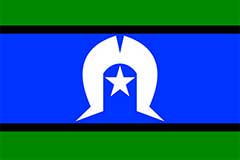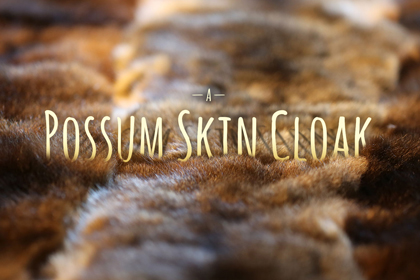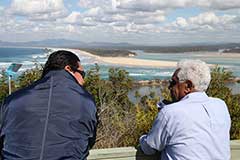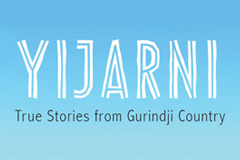Organisations in each state and territory can help with your Indigenous family history research. There are also a number of national organisations and non-government websites that support Aboriginal and Torres Strait Islander family history.
- Libraries hold a range of material that is useful for family history, including books, indexes and original manuscripts. Many larger libraries have special family history librarians who can help you with your research. Some libraries have online research guides to help you understand their collections.
- Archives hold original records, created by government agencies, private organisations or individuals. Archives are different from libraries, and you will need help from an archivist to locate and access records.
- Indigenous family history services are provided by state and territory governments to assist you in accessing records and personal information about your and your ancestors held in government archives.
- Link-Up organisations provide services to members of the Stolen Generations, their families, and foster and adoptive families. These include researching family and personal records, finding family members and support and counselling.
- Organisations for adoptees and care leavers (and their families) can help you find information about your personal and family history and connect you with family. They also provide counselling and support services.
- Family history community projects and organisations offer practical help in researching your family history. Some are Aboriginal and Torres Strait Islander focused. They may have library collections, computers, access to resources and provide training courses and workshops.
Before you contact them
Try to collect and organise as much information as you can before approaching organisations for help. They will need names, dates and places in order to help you with your research.
See Family history sources for more information about the kind of information you will find.
Australian Institute of Aboriginal and Torres Strait Islander Studies (AIATSIS)
The AIATSIS Family History Unit can help people researching their Indigenous family history. The AIATSIS Finding Your Family website is an online resource with a focus on helping people to learn how to do Indigenous family history research. AIATSIS offers an Australia-wide service. Aboriginal and Torres Strait Islander Biographical Index enables you to do an online name search of some of the material in the collection. AIATSIS cannot compile family trees or help you to confirm Aboriginality.
51 Lawson Crescent, Acton ACT 2601
GPO Box 553, Canberra ACT 2601
Ph: 02 6246 1111
Freecall: 1 800 352 553
Fax: 02 6261 4285
Email: familyhistory@aiatsis.gov.au
Web: www.aiatsis.gov.au/research/finding-your-family
State Library of Queensland
The State Library of Queensland provides family history services, with lots of online information as well as librarians who can help you access the library’s Aboriginal and Torres Strait Islander materials and family and local history collections.
Cultural Precinct, Stanley Place, South Bank, Brisbane QLD 4101
PO Box 3488, South Brisbane QLD 4101
Ph: 07 3840 7810
Fax: 07 3840 7795
Web: www.slq.qld.gov.au/resources/family-history (Family history)
www.slq.qld.gov.au/resources/atsi (Aboriginal and Torres Strait Islander Queensland)
James Cook University – Australian Aboriginal and Torres Strait Islander Family History
James Cook University Library has prepared an online guide to assist Aboriginal, Torres Strait Islander and South Sea Islander family historians locate sources available to them at James Cook University in Townsville and Cairns.
Web: libguides.jcu.edu.au/atsifamhistory
Queensland State Archives
Queensland State Archives holds records of the Queensland Government. Many records contain historical information about Aboriginal and Torres Strait Islander peoples. This information exists because of the control past Queensland governments had over Aboriginal and Torres Strait Islander people's lives. This information can be helpful in researching the family and community links of Indigenous Queenslanders.
The Community and Personal Histories team in the Department of Aboriginal and Torres Strait Islander Partnerships can help you with your research (see below).
435 Compton Road, Runcorn QLD 4113
PO Box 1397, Sunnybank Hills QLD 4109
Ph: 07 3131 7777
Fax: 07 3131 7764
Email: info@archives.qld.gov.au
Online form: www.archives.qld.gov.au/Researchers/Runcorn/Pages/Enquiries.aspx
Web: http://www.archives.qld.gov.au/Researchers/Resources/Pages/Indigenous.aspx (Indigenous resources)
www.archives.qld.gov.au/Researchers/Resources/FamilyHistory/Pages/Default.aspx (Family history)
Department of Aboriginal and Torres Strait Islander Partnerships – Community and Personal Histories
The Community and Personal Histories team can help you use Queensland state government records to research your family and personal history. If you or your family were born in Queensland, they may be able to help you with other information, such as proving your birth date.
Level 6A, Neville Bonner Building, 75 William Street, Brisbane QLD 4000
PO Box 15397, City East QLD 4002
Free call: 1800 650 230
Email: enquiries@datsip.qld.gov.au
Online form: www.qld.gov.au/atsi/cultural-awareness-heritage-arts/family-history-request-form/index.html
Web: www.datsip.qld.gov.au/people-communities/aboriginal-and-torres-strait-islander-family-history
Registry of Births, Deaths and Marriages
The Registry of Births, Deaths and Marriages has records of birth, death and marriage in Queensland from 1856, as well as some earlier church records. You can search and access historical birth, death and marriage records online. The cost of BDM records varies from state to state but is normally $30 to $50 per certificate.
110 George Street, Brisbane QLD 4000
PO Box 15188, City East QLD 4002
Free call: 1300 366 430
Email: bdm-mail@justice.qld.gov.au
Web: www.qld.gov.au/law/births-deaths-marriages-and-divorces/family-history-research
Link-Up Queensland
Link-Up Queensland provides services to individuals, families or communities who have been affected by past Australian government removal policies and practices, including separation through adoption, fostering, removal or institutionalisation. It provides family history research assistance to members of the Stolen Generations.
Free call: 1800 200 855
Email: contact@link-upqld.org.au
Web: www.link-upqld.org.au
Brisbane office
3-5 Reid Street, Woolloongabba QLD 4102
PO Box 3229, South Brisbane, Queensland QLD 4101
Ph: 07 3034 8444
Cairns office
18 Scott Street, Parramatta Park QLD 4870
PO Box 298, Bungalow QLD 4870
Ph: 07 4041 7403
Townsville office
c/-Relationships Australia, 745 Riverway Drive, Thuringowa QLD 4817
PO Box 247, Thuringowa QLD 4817
Ph: 0410 639 645
Mt Isa office
1/81 Miles Street, Mt Isa QLD 4825
PO Box 296, Mt Isa DC QLD 4825
Ph: 0417 097 322 or 0459 028 380
Find & Connect Support Service Queensland – Lotus Place
Find & Connect supports people who grew up in orphanages, children’s homes, institutions and foster homes. Find & Connect can help you obtain your personal records, trace your history and understand why you were placed into care, as well as providing counselling and other services.
56 Peel Street, South Brisbane QLD 4101
Free call: 1800 16 11 09
Ph: 07 3055 8500
Email: lotus@micahprojects.org.au
Web: www.lotusplace.org.au (Lotus Place)
www.findandconnect.gov.au (Find & Connect)
Post Adoption Support Queensland – Benevolent Society
Post Adoption Support Queensland provides specialised post adoption counselling and support for people in Queensland, including help in searching for relatives and mediation for people reuniting with family members.
9 Wilson Street, West End QLD 4101
Free call: 1300 914 819
Ph: 07 3170 4600
Fax: 07 3255 2953
Email: pasq@benevolent.org.au
Web: www.benevolent.org.au/connect/post--adoption--support--home
National Archives Australia (Brisbane)
The National Archives of Australia holds federal government records, including many about Indigenous Australians (mostly people from Victoria and the Northern Territory). The archives has offices around Australia. Records about Queensland are mostly held in Brisbane and Canberra. The Bringing Them Home name index can help you find information about Indigenous family members in National Archives records.
16 Corporate Drive, Cannon Hill QLD 4170
PO Box 552, Cannon Hill QLD 4170
Ph: 07 3249 4200
Fax: 07 3249 4299
Email: ref@naa.gov.au
Web: www.naa.gov.au/collection/a-z/aboriginal-people.aspx (Aboriginal and Torres Strait Islander people)
www.naa.gov.au/collection/family-history (Family history)
National Library of Australia
The National Library collects and makes available material of national significance about Australia and Australians. It holds books, manuscripts, newspapers, photographs and oral histories that could be useful in researching your family – much of this is available online through Trove. The library has a family history collection and staff you can help you to locate material.
Parkes Place, Canberra ACT 2600
Ph: 02 6262 1111
Fax: 02 6257 1703
Ask a Librarian (online contact form): www.nla.gov.au/askalibrarian
Web: www.nla.gov.au/research-guides/family-history
www.nla.gov.au/what-we-collect/indigenous
Australian War Memorial
Indigenous people have served in every military conflict that Australia has been involved in since the Boer War (1899-1902). Military records are a rich source of information about the men and women who served in the armed forces, and sometimes their family members.
Treloar Crescent, Campbell ACT 2612
Ph: 02 6243 4211
Fax: (02) 6243 4325
Email: info@awm.gov.au
Web: www.awm.gov.au
Indigenous Australian servicemen: www.awm.gov.au/encyclopedia/aborigines/indigenous/
People, profiles and biographies: www.awm.gov.au/people/profiles/ (940 Indigenous service persons)
Research guides for Indigenous family history
Research guides provide comprehensive information for people doing family history research. They often include an outline of the history of colonisation and Aboriginal protection/welfare legislation, linking these to the records that were created about Indigenous people.
Books published by AIATSIS
- Penny Taylor, Telling it like it is: A guide to making Aboriginal and Torres Strait Islander history, AIATSIS, 1992
- Diane Smith and Boronia Halstead, Lookin for your mob: A guide to tracing Aboriginal family trees, Aboriginal Studies Press, 1990.
Online guides
- Aboriginal and Torres Strait Islander family history – State Library of Queensland: www.slq.qld.gov.au/resources/family-history/atsi
- Records about Aboriginal and Torres Strait Islander peoples – Queensland State Archives: www.archives.qld.gov.au/Researchers/Resources/Pages/Indigenous.aspx
- Records relating to Aboriginal and Torres Strait Islander peoples (Brief guide 50) – Queensland State Archives: www.archives.qld.gov.au/Researchers/CollectionsDownloads/Documents/BG50ATSI.pdf (PDF 51 KB)
- Aboriginal and Torres Strait Islander people – National Archives of Australia: www.naa.gov.au/collection/a-z/aboriginal-people.aspx
Websites
- Centre for Indigenous Family History Studies (CIFHS) – a name searchable archive of some government documents relevant to Aboriginal and Torres Strait Islanders. The site is updated with new records continuously. Some of the documents contain offensive language. www.cifhs.com
General family history organisations
Family history groups, local history societies and local libraries
Local family history groups, local history societies and local libraries are valuable sources of information and resources. They can put you in contact with people with a good knowledge of the local history of a town or area that you are interested in. Many also have local studies collections with books, newspapers, family histories, photographs and manuscripts.
Find local libraries
You can use Australian Libraries Gateway – Find a Library to locate libraries in Queensland with family history and local history collections. Under location select �?QLD’ and under library type select �?Local/Family history’. You can also browse using the map.
Genealogical Society of Queensland
The Genealogical Society of Queensland’s mission is �?helping to discover your family history’. It has the largest family history library in Queensland and offers courses and talks. As well as its main resource centre at East Brisbane, the society has five branches in the South East Queensland region.
38 Fisher Street, East Brisbane QLD 4102
PO Box 8423, Woolloongabba QLD 4102
Ph: 07 3891 5085
Email: info@gsq.org.au
Web: www.gsq.org.au
Family history research websites
- CoraWeb: a comprehensive, categorised and cross-referenced list of links and useful advice about tracing your family history (Australia)
- Ancestry – Help & Advice: general family history advice, as well as information about using Ancestry’s paid services (Australia)
- Cyndi’s List: a comprehensive, categorised and cross-referenced list of links that point you to genealogical research sites online (USA)
- FamilySearch Learning Center: articles and short online courses put together by the largest genealogical organisation in the world (USA)
Find family history and historical societies
- CoraWeb – Genealogy, Family History and Historical Societies: www.coraweb.com.au/categories/family-history-and-historical-societies
- Cape Banks Family History Society – Australian Family History Societies: www.capebanks.org.au/australian-family-history-societies/
Society of Australian Genealogists
The Society of Australian Genealogists helps people trace their family history, providing genealogy advice and running workshops and lectures. It has an excellent family history library and a manuscript collection in central Sydney.
�?Richmond Villa’, 120 Kent Street, Sydney NSW 2000
Ph: 02 9247 3953
Fax: 02 9241 4872
Email: info@sag.org.au
Web: www.sag.org.au




